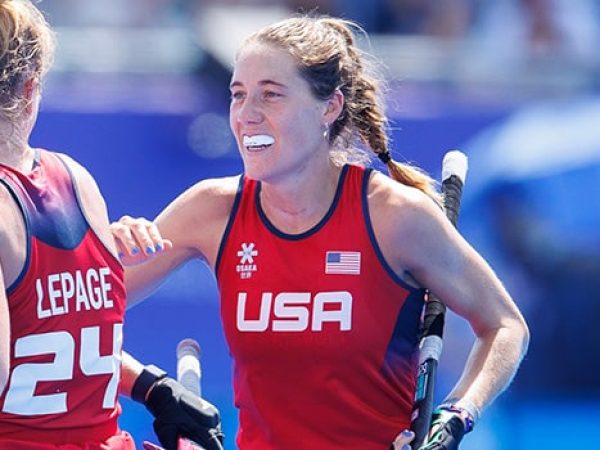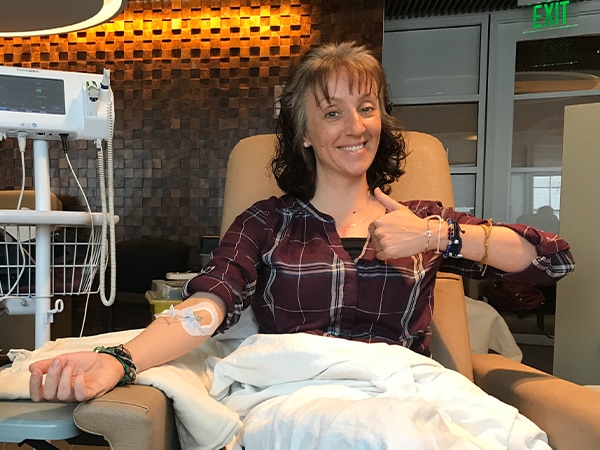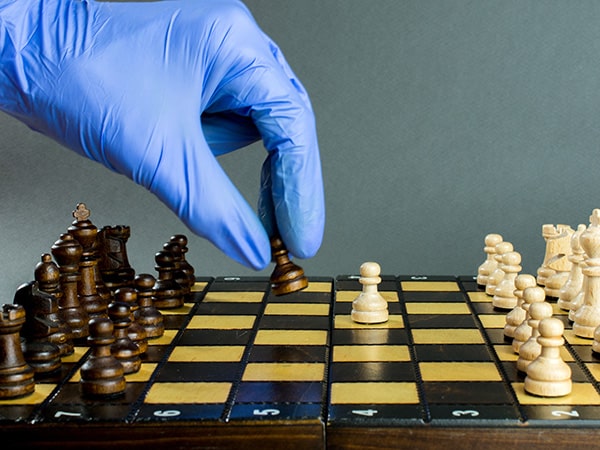Daniel Lee Miller: Striving for a Full Life with Metastatic Cancer
With metastatic thyroid cancer looming in the background, Daniel Miller pursues a fulfilling life as a husband, father of two young children, and physician-scientist.
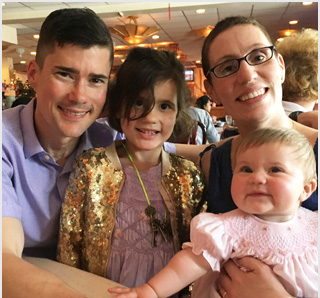
After graduating from Regis University, a Jesuit college in Denver, Daniel Lee Miller, MD, PhD, joined AmeriCorps to serve as part of an emergency response team while he took the science courses he needed to apply for medical school. He had always planned to be a high school biology teacher, but a molecular biology class during his senior year of college ignited his interest in medicine.
An athlete, Dan worked out regularly and filled much of his spare time with his passion for rock climbing. He was in great shape and setting his sights on becoming a pathologist, so when he noticed a swollen lymph node in his neck, Dan didn’t think much of it.
A couple months later, a headache prompted a visit to his doctor, who noticed the swollen lymph node and sent Dan to a surgeon. The surgeon scheduled him for a CT scan using an iodine-based contrast agent.
“I lit up like a Christmas tree,” Dan recalls. “It was like the floor dropped from beneath my feet. I didn’t know what to do.”
He had a large tumor on his thyroid and the disease had spread to the lymph nodes in his neck and his lungs. Dan was diagnosed with metastatic thyroid cancer. It was April 2005. He was 25. Despite the shock of his diagnosis, Dan quickly determined he needed to “get up, put one foot in front of the other, and keep moving.”
He moved back home with his mom, buckled down to get ready for his MCATs, and went to work as a lab tech in a molecular biology laboratory at Washington University in St. Louis. It was his first exposure to academic biomedical research, and he loved it.
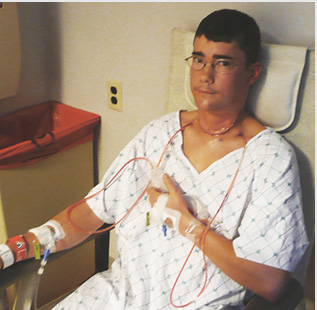
He got treatment for his cancer: first, surgery to remove his thyroid and the tumor, followed by radioactive iodine therapy. Despite the diagnosis of metastatic disease, Dan’s prognosis was good and after being accepted into medical school at the University of Missouri School of Medicine, he moved forward with the plan to become a doctor by taking things “day by day.”
At medical school, he met his future wife.
Then a lesion was discovered in his vertebrae. The cancer had spread again. Unsure he could continue with medical school because of the progression of his disease, Dan opted to return to laboratory research and to pursue a PhD at the University of Missouri.
In late 2009, Dan and his wife had their first child, a little girl. He returned to medical school, now intent on becoming a physician-scientist. Today, having completed his MD in addition to his PhD, Dan has started his medical residency in pathology. In 2015, Dan and his wife had their second daughter.
Always in the background lies Dan’s cancer and the questions it raises about the right direction for life and his career.
“I have a passion for being in the lab and miss it,” Dan recently explained. “But the prospect as a post-doc researcher with the goal of getting a young investigator award is daunting, because the situation with federal funding makes taking the traditional path to becoming a principal investigator uncertain.”
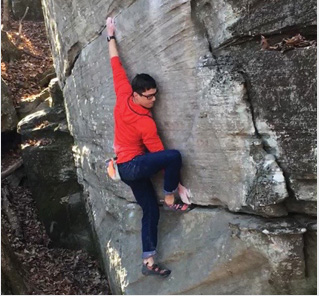
His concern over this issue prompted Dan to join other in an AACR early-career investigator day on Capitol Hill to speak with senators and representatives, urging them to increase support lifesaving cancer research.
“I felt like I was a good face to attach to the issue. I’m living with cancer while trying to have a career at the cutting edge of science and medicine,” he said.
He added that his disease “feels like a ticking time bomb; it’s there and it’s stable, but I don’t know how long that will last. It is hard to know whether it will last forever or whether the cancer will progress again in a year or in 10 years. The next step for me [if the cancer progresses] would be a clinical trial.”


